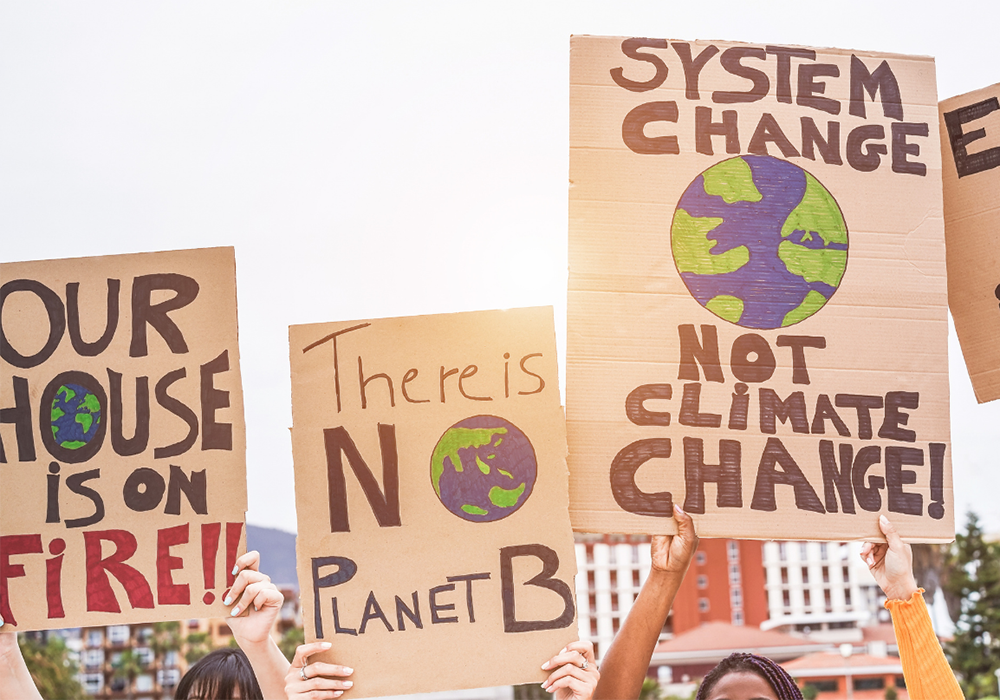
In recent years climate change has become a hotly debated topic. But from the devastating fires in Australia and California, a recent winter storm in Texas, and the derecho in the Midwest, it’s impossible to deny that the climate is changing and taking a human toll.
It wasn’t so long ago that Hillary Clinton famously declared that human rights are women’s rights, and climate change is certainly a human rights issue. As we learn more about its impact, it’s become clear that climate change disproportionately affects women around the world.
So, what makes climate change a women’s issue?
The consequences of climate change disproportionately affect women around the world. Women are more vulnerable to issues of inequality, and issues of inequality make women more vulnerable to climate change.
“The IPCC [International Panel on Climate Change] found that gender inequalities are further exaggerated by climate-related hazards, and they result in higher workloads for women, occupational hazards indoors and outdoors, psychological and emotional stress, and higher mortality compared to men,” Verona Collantes, an intergovernmental specialist with UN Women, told Global Citizen.
Natural disasters take the biggest toll on impoverished communities, and 70% of people living in poverty are women. Women are more likely than their male peers to experience food insecurity, domestic violence, and lack of resources that can accompany major weather events.
Women, especially those who are disadvantaged, are also less likely to have mobility within their communities or between countries. Women and girls around the world are more likely to take on household and caregiving responsibilities. For example, women and girls are responsible for 80% of water collection in households without direct access to water. As water becomes more scarce, those treks become longer and more dangerous.
Major weather events can have major impacts on access to healthcare, and can cause poorer health conditions. Clean water, a safe home, and access to food are all imperative to a person’s wellbeing. According to a study conducted by the United Nations, in 2012 indoor air pollution from combustible fuel use caused over four million deaths, and women and girls made up over half of them. For many women, climate change is stealing their safety and access to clean, health resources.
In places where reproductive healthcare is already hard to come by, this issue can even mean life or death. Scientists say climate change has been a contributor to pandemics like the COVID-19 pandemic, which has taken a major toll on women.
An estimated 20 million people are forced from their homes every year due to the effects of climate change, and many don’t have somewhere else to go. Being displaced from their homes makes women and young girls more susceptible to gendered and sexual violence when aid can be even harder to find.
It’s not as if women are predisposed to experience climate disaster differently, but in a world where women already face issues of inequality, climate change adds additional obstacles.
“It has more to do with societal roles rather than physiological differences. I tend to say climate change is exacerbating existing inequalities, be that gender or other inequalities,” Kim Van Daalen, a PhD student in global public health at the University of Cambridge told Carbon Brief.
Women aren’t just victims of climate change, they are also the solution. Women, especially young women, have been on the frontlines of advocating for equity and sustainability. Young people like Greta Thunberg have become hugely influential. Thunberg was only fifteen when she began protesting in front of Swedish parliament. Her protests have gone viral on social media, and she’s travelled around the world to advocate for change.
Mari Copeny is another young woman advocating for big change. Copeny made headlines at just thirteen when she wrote to then President Obama urging him to address the water crisis in Flint, Michigan. They’re just two young people who have inspired women around the world to become active and engaged in the fight against the climate crisis.
The Paris climate agreement actually addresses the issue of gender inequality within climate change. The agreement acknowledges that women’s empowerment and gender equality are hugely important to combatting the effects of global climate change. It’s just one step in the right direction for combating climate change and building a more equitable world.